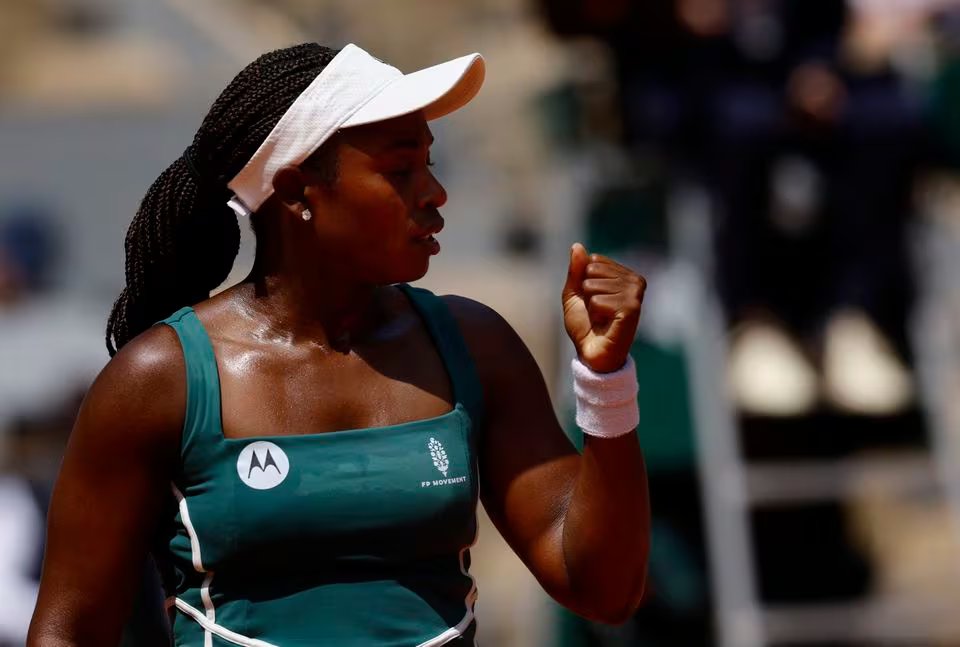Spain
Sloane Stephens Highlights Escalation Of Racial Abuse Against Players

Sloane Stephens Highlights Escalation Of Racial Abuse Against Players:
Sloane Stephens, world number 30, highlights the persistence of racism in professional sports. Racist harassment has plagued the Black tennis player throughout her career, she said after defeating Karolina Pliskova in the French Open first round.
Stephens remarked that the problem has persisted and worsened despite her success. The tennis star’s experience shows that racism in sports penetrates the athletic world and requires a complete remedy.
Sports organizers have installed software to prevent and filter racist remarks in response to mounting concerns about racial abuse. Stephens found that various precautions, including French Open player software, frequently fail to avoid such events.
The athlete said anyone may simply evade Instagram’s essential phrase prohibition, showing the shortcomings of existing defensive systems. Due to the limitations of current preventative methods, athletes like Stephens continue to struggle with prejudice.
Racist Abuse Beyond Tennis: A Broader Sporting Issue
Beyond tennis, racism affects athletes in other sports. The recent racist taunts against Real Madrid player Vinicius Jr. and the continuing inquiry into Tottenham Hotspur’s Son Heung-min highlight the prevalence of this issue.
Sloane Stephens used FBI investigations into internet harassment to underline the necessity for a collective response to sports bigotry. This subtopic examines how racism transcends sports and requires players, sports organizations, and society to work together to confront and change it.
Software Solutions And The Quest For Effective Anti-racist Measures
Sports organizers have used artificial intelligence-based hate speech detection tools to tackle racism. These efforts to make athletes safer online are excellent. Sloane Stephens notes that these technology solutions’ shortcomings cast doubt on their efficacy.
The program may filter out some racist remarks, but abusers’ resourcefulness in finding other methods to express themselves remains a challenge. Stephens’ reluctance to utilize the program shows that some athletes doubt technology can combat racial harassment. As the athletic world grapples with this problem, technical solutions must be refined and improved to safeguard athletes of all backgrounds.
Global Repercussions: Racism And Its Impact On Athletes Worldwide
Racist chanting at Valencia’s Mestalla stadium against Real Madrid’s Vinicius Jr. shows that racism is global. Any athlete, regardless of sport, nationality, or notoriety, may be abused. Sloane Stephens’ acknowledgment of FBI internet abuse investigations underlines the worldwide effect of racism on athletes’ mental and emotional health.
This subtopic shows how happenings in one sport affect the whole athletic world. Athletes’ solidarity in these issues indicates a shared commitment to ending racism and creating a more inclusive sports culture.
Anonymous Platforms And The Challenge Of Accountability
Stephens’ striking statement about “free rein to say and do whatever they want behind fake pages” highlights the significance of anonymity in online racism. Lack of accountability on social media enables abusers to operate with impunity, making racial abuse harder to track and handle.
Anonymous online places present issues, and platforms must be more aggressive in keeping users responsible. Tech firms, sports organizations, and law enforcement must work together to make the internet a safer place for athletes to express themselves without fear of racist abuse. To promote respect and diversity in sports, we must address the core causes of racism online and offline.
Read Also: Widespread Racism, Sexism, And Elitism Uncovered In English Cricket
The Impact On Mental Health: Racism’s Toll Beyond The Playing Field
Racism harms athletes’ mental health beyond sports. Sloane Stephens’ acknowledgment of FBI investigations into internet abuse emphasizes the issue’s gravity and its effect on racial assault victims. An athlete’s performance might suffer from continuous racist insults, which can create stress, anxiety, and isolation.
The emotional and psychological effects of racism highlight the necessity for comprehensive sports support systems. As athletes relate their stories, it becomes clear that combating racism needs a comprehensive strategy that emphasizes mental health above legislative changes and technical solutions.
Athletes Unite Against Racism
Sloane Stephens’ comments on racism’s rise emphasize the need for structural reform in sports. Beyond specific incidences, racial abuse mechanisms must be challenged and dismantled. Stephens and other athletes are using their platforms to promote change.
This subtopic discusses athletes’ capacity to shape public opinion and hold sports organizations responsible. It discusses inclusive policy, diversity training, and cultural understanding in sporting institutions. The sports community can create a more equal and respectful future by valuing diversity and fighting prejudice.
Allies And Advocacy: Building A Supportive Network
As the battle against sports racism grows, allies and advocacy become more critical. Athletes like Sloane Stephens, who speak up against racism, inspire change. Racism must be addressed by players, spectators, sports organizations, and society as a whole.
Allyship and activism help athletes enduring racial abuse build a support network. It shows the excellent impact of people and organizations fighting racism and promoting inclusion. The sports community can send a strong statement that racism has no place in athletics by uniting against it.
Legal Implications And The Fight For Justice
Sloane Stephens’ reference to FBI investigations into online racist harassment creates legal and justice problems. The prevalence of racism in sports and the changing form of internet harassment need a robust legal framework to handle these challenges.
This subtopic examines the obstacles and opportunities of legal action against racial abusers and how the legal system might dissuade and hold them accountable. The legal framework for online abuse is complicated, but continuing cases and conversations allow athletes to review and enhance their legal options.













You must be logged in to post a comment Login